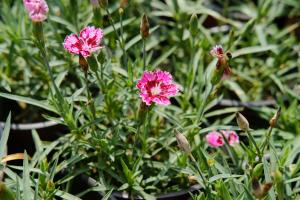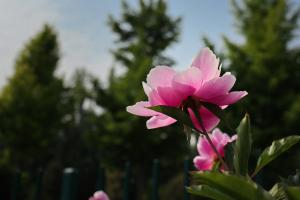Introduction
Watering plants is an essential part of gardening. However, the type of water you use can have a significant impact on the growth and health of your plants. Tap water is a common choice for many gardeners, but should you use it? In this article, we will explore the pros and cons of using tap water to water plants.
Pros of Using Tap Water
One of the advantages of using tap water to water your plants is convenience. It's readily available straight from your tap and doesn't require any additional effort or expense. Additionally, most tap water is treated and filtered, which can remove harmful chemicals and contaminants that may be present in other water sources. This makes tap water a reliable and safe option for watering plants.
Cons of Using Tap Water
Despite its convenience and safety, tap water may not be the best choice for all types of plants. Depending on where you live, tap water may contain high levels of minerals, especially calcium and magnesium. While these minerals are essential for plant growth, excessive amounts can cause damage to the roots and decrease the plant's ability to absorb water and nutrients from the soil.
Another concern with tap water is its pH level. The pH level of tap water can vary depending on the source and treatment process. If the water is too alkaline or acidic, it can affect the plant's ability to absorb nutrients and may cause damage to the leaves and roots.
Alternative Water Sources
If tap water is not an option or you prefer using a different water source, there are several alternatives to consider. Rainwater is an excellent choice as it's free from minerals and has a neutral pH level. However, it may not be suitable for all plants, especially those that are sensitive to pollutants or contaminants that may be present in the air.
Filtered water, such as reverse osmosis or distilled water, is another option to consider. These methods remove most of the minerals and contaminants found in tap water and provide a neutral pH level. However, these options can be expensive and time-consuming, especially if you have a large garden.
Conclusion
In conclusion, whether you should use tap water to water your plants depends on several factors, including the plant's type and sensitivity, the pH level and mineral content of your tap water, and personal preference. While tap water can be convenient and safe, it may not be the best option for all plants. Consider using alternative water sources, such as rainwater or filtered water, if tap water is not suitable or if you prefer a different option. Ultimately, the key is to provide your plants with water that's safe and beneficial to their growth and health.

 how many times do yo...
how many times do yo... how many planted tre...
how many planted tre... how many pine trees ...
how many pine trees ... how many pecan trees...
how many pecan trees... how many plants comp...
how many plants comp... how many plants can ...
how many plants can ... how many plants and ...
how many plants and ... how many pepper plan...
how many pepper plan...































